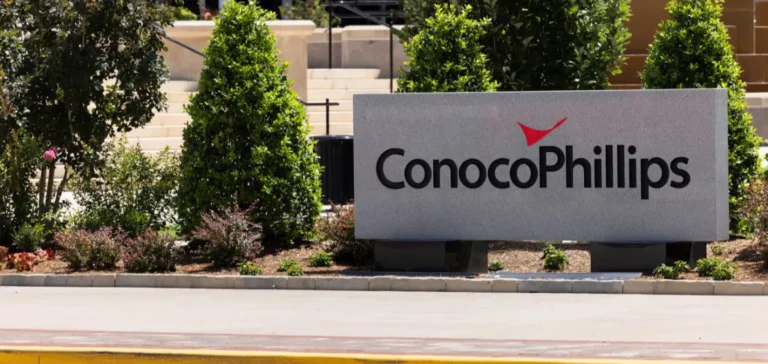ConocoPhillips reported net profit of $2.0 bn for the second quarter of 2025, or $1.56 per share, down from $2.3 bn and $1.98 per share recorded during the same period in 2024. Excluding non-recurring items, adjusted profit amounted to $1.8 bn, or $1.42 per share, as total production increased but falling prices and rising costs weighed on profitability. The average realised price stood at $45.77 per barrel of oil equivalent, a decrease of 19% year-on-year.
Acceleration of disposals and operational adjustments
The group raised its asset disposal target to $5 bn by the end of 2026, after already surpassing the $2 bn mark with the sale of its Anadarko Basin assets for $1.3 bn. The completion of Marathon Oil’s integration enables the group to anticipate more than $1 bn in annual synergies and the same amount in one-off gains by the end of 2025. At the same time, ConocoPhillips expects to generate over $1 bn in annualised cost savings and margin improvements by 2026, while continuing to optimise its operations in the Lower 48 region.
Second-quarter production reached 2,391 thousand barrels of oil equivalent per day (MBOED), an increase of 3% after adjusting for recent acquisitions and disposals. In the Lower 48, production was driven by the Permian, Eagle Ford and Bakken areas, with 845, 408 and 205 MBOED respectively.
Financial outlook and capital management
Operating cash flow stood at $3.5 bn for the quarter. Excluding changes in working capital mainly related to the tax calendar, adjusted cash flow (CFO) reached $4.7 bn. During the quarter, the company invested $3.3 bn in capital expenditures, repurchased $1.2 bn of its own shares, paid $1.0 bn in ordinary dividends, and repaid $0.2 bn in debt.
For the first six months of 2025, net profit amounted to $4.8 bn, compared to $4.9 bn in 2024. Adjusted profit stood at $4.5 bn for the period, on identical total production of 2,391 MBOED. The average price over six months was $49.54, down 12% year-on-year. Investments totalled $6.7 bn and share buybacks $2.7 bn.
Outlook and activity in the liquefied natural gas market
For the third quarter of 2025, expected production is between 2.33 and 2.37 mn barrels of oil equivalent per day, a target maintained despite recent or announced disposals. Internationally, ConocoPhillips is advancing its liquefied natural gas (LNG) strategy with the signing of a regasification agreement in France and a sales contract in Asia, both to become operational from 2028. Planned operations in Norway and Qatar were also successfully completed during the quarter.
The company ended the quarter with $5.7 bn in cash and $1.1 bn in long-term investments. Management confirms an effective tax rate expected in the 30% to 39% range for the full year, along with a deferred tax benefit of around $0.5 bn. An ordinary dividend of $0.78 per share has been declared for the third quarter, confirming the return policy to shareholders. Chief Executive Officer Ryan Lance stated, “We continue to pursue disciplined capital management to strengthen the group’s financial performance.”






















